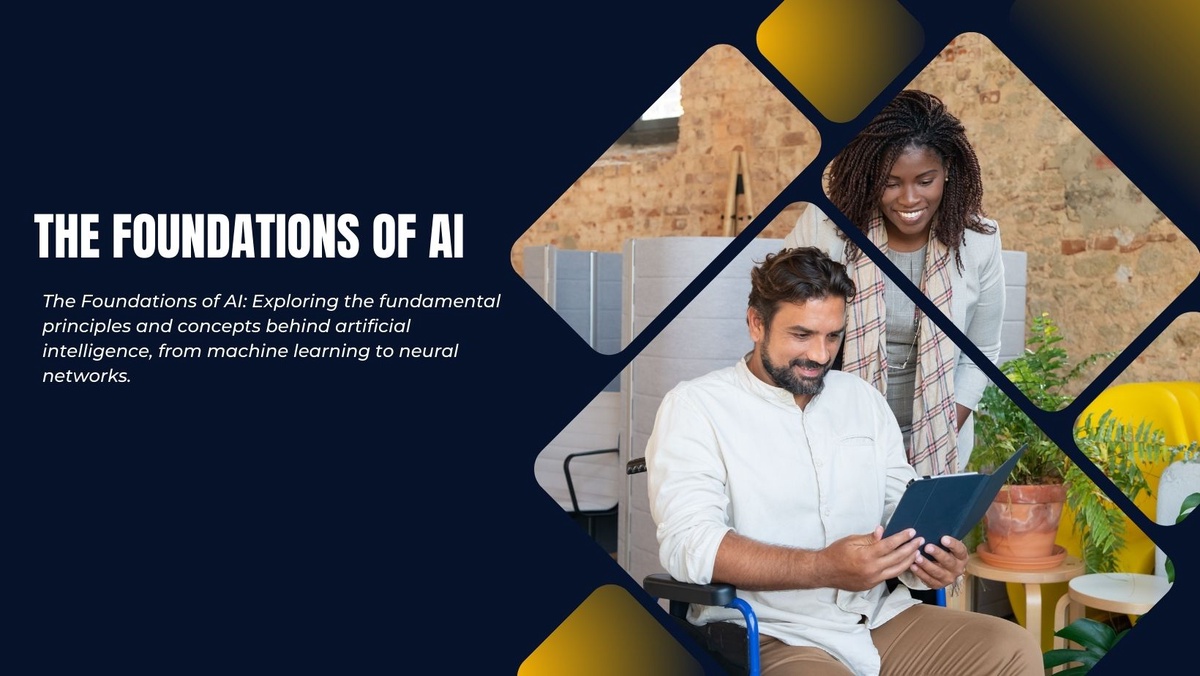Artificial Intelligence (AI) is a rapidly evolving field that aims to create intelligent machines that can mimic human behavior and perform tasks that typically require human intelligence. In this article, we will explore the foundations of AI, including its history, core concepts, types, applications, impact on society, ethical considerations, and future prospects.
Introduction to Artificial Intelligence (AI)
Artificial Intelligence (AI) refers to the simulation of human intelligence in machines that are programmed to think and act like humans. It encompasses various subfields, such as machine learning, natural language processing, and robotics, among others.
History and Evolution of AI
The concept of AI dates back to ancient times, but the modern field of AI began in the 1950s with the development of the Turing Test by Alan Turing. Since then, AI has evolved rapidly, with major milestones such as the development of expert systems, neural networks, and deep learning algorithms.
Core Concepts of AI
The core concepts of AI include:
- Machine Learning: A subset of AI that enables machines to learn from data and improve their performance over time.
- Natural Language Processing (NLP): The ability of machines to understand and interpret human language.
- Computer Vision: The ability of machines to interpret visual information from the real world.
- Robotics: The field of AI that deals with the design and creation of robots that can perform tasks autonomously.
Types of AI
There are two main types of AI:
- Narrow AI: AI that is designed for a specific task, such as facial recognition or language translation.
- General AI: AI that can perform any intellectual task that a human can do.
Applications of AI
AI has a wide range of applications across various industries, including:
- Healthcare: AI is used for disease diagnosis, personalized treatment planning, and drug discovery.
- Finance: AI is used for fraud detection, algorithmic trading, and customer service.
- Automotive: AI is used for autonomous driving and predictive maintenance.
- Retail: AI is used for inventory management, personalized marketing, and customer service.
Impact of AI on Society
AI has the potential to transform society in many ways, including:
- Increased Efficiency: AI can automate repetitive tasks, freeing up time for more complex and creative work.
- Improved Healthcare: AI can improve diagnostic accuracy and treatment effectiveness in healthcare.
- Enhanced Safety: AI can be used to enhance safety in industries such as transportation and manufacturing.
- Job Displacement: AI has the potential to automate many jobs, leading to job displacement in some industries.
Ethical Considerations in AI
There are several ethical considerations to take into account when developing AI, including:
- Bias: AI algorithms can exhibit bias if they are trained on biased data.
- Privacy: AI systems can collect and analyze vast amounts of data, raising concerns about privacy.
- Transparency: AI algorithms can be complex and difficult to understand, raising questions about transparency and accountability.
Future of AI
The future of AI is likely to be characterized by continued advancements in technology, including:
- More Advanced AI Systems: AI systems will become more sophisticated and capable of performing a wider range of tasks.
- Increased Automation: AI will continue to automate many tasks, leading to changes in the workforce.
- Ethical and Regulatory Frameworks: There will be a greater focus on developing ethical and regulatory frameworks for AI to ensure its responsible use.
Conclusion
In conclusion, AI is a rapidly evolving field with the potential to transform society in many ways. By understanding the foundations of AI, including its history, core concepts, types, applications, impact on society, ethical considerations, and future prospects, we can better prepare for the opportunities and challenges that AI will bring.
FAQs
Q. What are some examples of narrow AI applications?
Ans. Some examples of narrow AI applications include virtual assistants like Siri and Alexa, facial recognition technology, and language translation services.
Q. How is AI different from human intelligence?
Ans. AI is different from human intelligence in that it is based on algorithms and data processing, whereas human intelligence is based on cognitive processes and consciousness.
Q. What are some ethical concerns related to AI?
Ans. Some ethical concerns related to AI include bias in AI algorithms, invasion of privacy, and the potential for AI to be used for malicious purposes.
Q. What is the role of AI in the future of work?
Ans. AI is expected to automate many tasks in the future, leading to changes in the workforce and the types of skills that are in demand.
Q. How can AI be used to address societal challenges?
Ans. AI can be used to address societal challenges such as healthcare, climate change, and poverty by enabling more efficient and effective solutions.


No comments yet